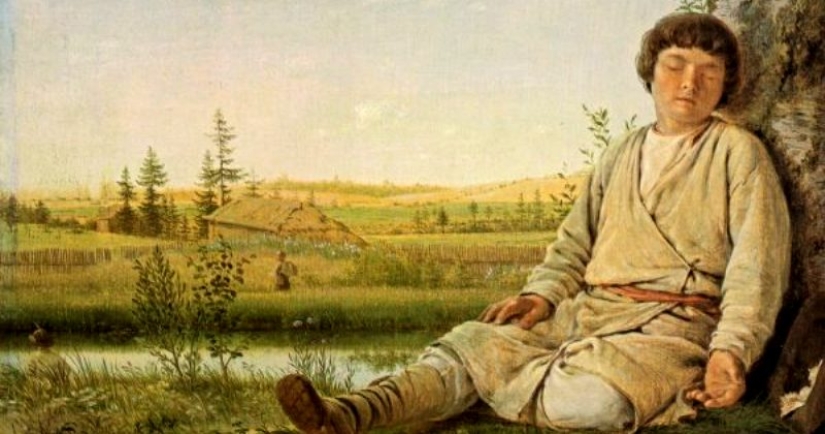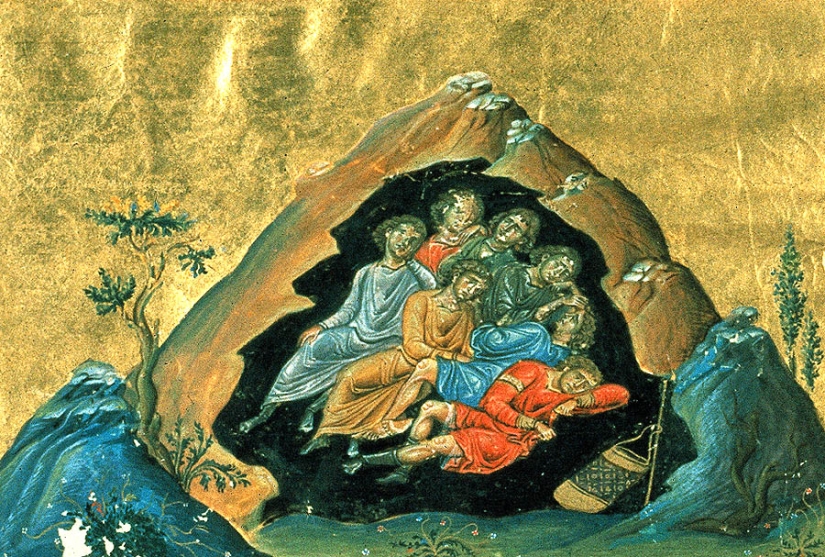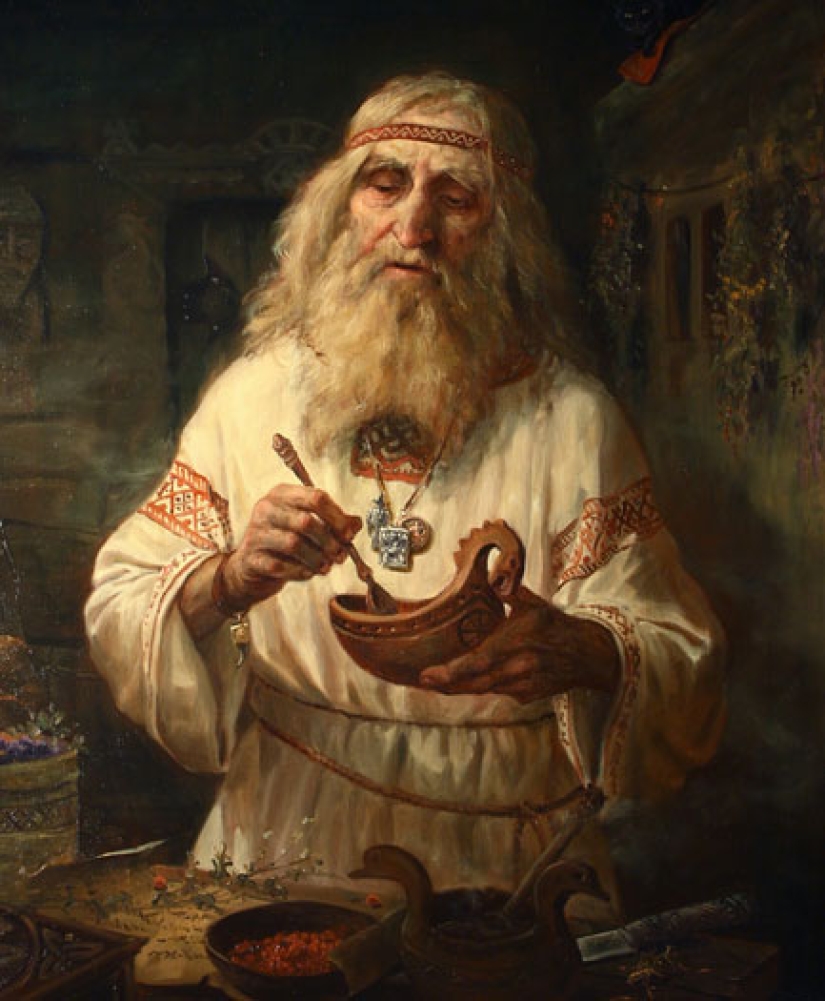How our ancestors fought insomnia
Categories: Health and Medicine | History
By Pictolic https://pictolic.com/article/how-our-ancestors-fought-insomnia.htmlIf you think that sleep disorders are a problem of modern man, then you are deeply mistaken. Insomnia has tormented people at all times, although its causes may have been different. Now the problem is solved in different ways. You can resort to the achievements of pharmacology, or you can turn to a psychologist. In Rus', everything was much more interesting, since you had to use harsh folk methods or turn to healers.

The only drugs available to our ancestors came from nature itself. Herbs were the basis for the prevention and treatment of any ailments and disorders, including insomnia. There were many options for restoring sleep, but thyme, St. John's wort, oregano and hops were in the greatest demand.

Herbs were first carefully dried and then mixed with straw or hay. The resulting material stuffed pillows and mattresses. Forest and field herbs retained their aroma for a very long time. The owners of such bedding diligently crushed and shook them before going to bed so that the herbs would better give off their smells.
Pillows were also stuffed with straw mixed with lily of the valley, lemon balm, mint or sleep grass. Warmed by the human body, the herbs in the pillow began to give off essential oils, filling everything around with a soothing fragrance. Sometimes they managed with a small number of plants, filling bags with them. They were usually hung at the head of the bed of those who did not sleep well.
The choice of herbs was taken very seriously. Carefully selected only medicinal and completely safe. It was impossible to use bird cherry, the smell of which was too strong. There were also special requirements for the main filler, hay. They took only what was obtained at the first mowing.

The shelf life of a pillow, mattress or aromatic bag did not exceed a year. Sometimes the stuffing was changed even twice a year. Bedding with herbs was afraid of moisture and therefore once or twice a month they were taken out of the house to dry in the sun.
There are many foot massage enthusiasts these days. This relaxing procedure also helped our ancestors to fall asleep. In Rus', it was believed that negative energy could cause sleep problems. To remove it, it was necessary to wash your feet before going to bed. Well, if this simple method did not help, then they resorted to scratching the heels, that is, to massage the legs.

In the villages, the heads of peasant families were scratched by their wives and children, and those who lived richer could hire a professional comber. Yes, there was such a profession, we can say that they were masseurs of a narrow profile. Wealthy families did not save on health and preferred to pay real specialists. They literally worked wonders, helping to forget about all the hardships of the past day and quickly fall into a deep sleep.
Today, doctors say that scratching your heels is not just a way to relax, but also a health benefit. There are a lot of nerve endings in the feet and the right impact on them heals well. This method of massage has been known since ancient times. The father of medical science Hippocrates himself mentioned it in his writings. In the East, it was believed that foot massage helps to get rid of pain in the back and joints.
The words "nap" and "calm down" didn't come up by themselves. They came from the names of the ancient Slavic gods Drema and Ugomon. Drema, resembling a dilapidated old woman, came to people under the windows, sending a sound and healthy sleep. Her son's name was Ugomon and he often helped his mother. When sleep did not come, in Rus' they turned to these deities. They could also help put a capricious child to bed.

After the adoption of Christianity, Drema and Ugomon were gradually forgotten. For sleep, they began to turn to the saints, among whom Irinarkh was responsible for sleep. It was said about this elder that he was so devoted to his faith that he did not sleep. Irinarch refused to sleep in order to pray fervently at this time, and this miraculously did not harm his health.
There were also seven Ephesian youths who, on the contrary, slept too much. According to legend, these Christian youths, fleeing persecution, hid in a cave. There they slept for 200 years until the danger was over. They can also help with insomnia. Many people who were not too experienced in matters of faith simply prayed to Nicholas the Wonderworker. This saint was considered the universal helper of all those who suffer.

They turned to healers for help. In pagan times, this was a very popular way to deal with insomnia. With the advent of Orthodoxy, the demand for conspiracies decreased somewhat, but did not disappear. They went secretly to healers and grandmothers, since the church did not approve of such treatment. In some regions, this ancient method of dealing with insomnia is still used today.
Recent articles

It's high time to admit that this whole hipster idea has gone too far. The concept has become so popular that even restaurants have ...

There is a perception that people only use 10% of their brain potential. But the heroes of our review, apparently, found a way to ...

New Year's is a time to surprise and delight loved ones not only with gifts but also with a unique presentation of the holiday ...